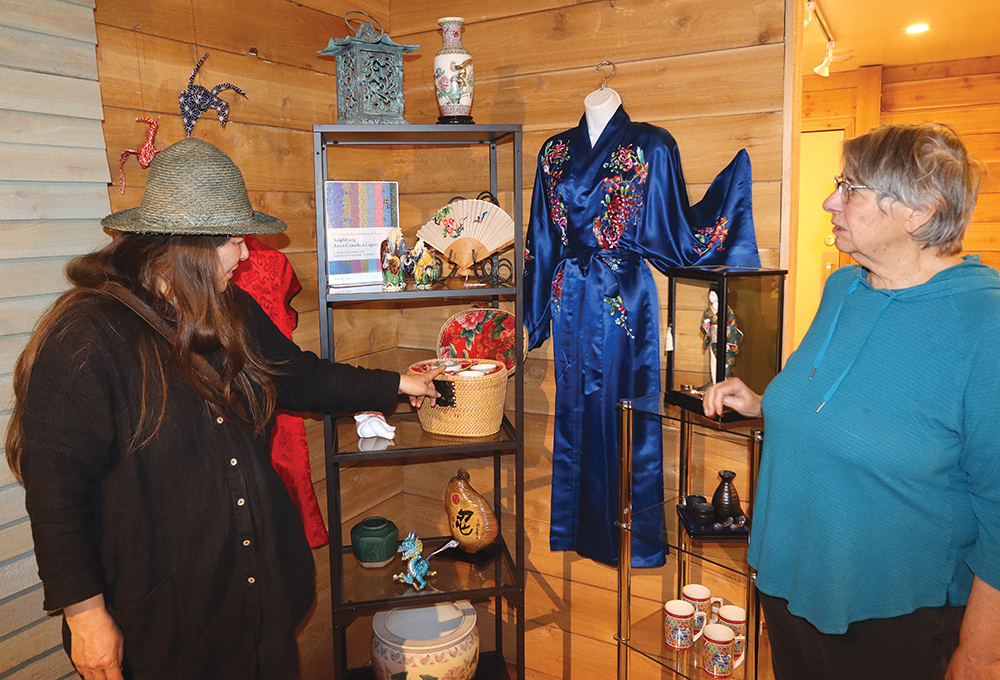
Yarrow Koontz (left), Artistic Director for the Japanese Canadian Legacies Project at the Gabriola Historical and Museum Society, speaking with Joan Merrifield, Museum President in front of the exhibit opened to celebrate Asian Awareness month. Derek Kilbourn photo
Sounder News
The Gabriola Historical and Museum Society is celebrating Asian Heritage Month 2024 with an exhibit of items from a Gabriola resident’s private collection.
The theme for Asian Heritage Month 2024 is “Preserving the Past, Embracing the Future: Amplifying Asian Canadian Legacy.”
The exhibit is on display until June 1, 2024.
The items on display came from the private collection of a Gabriola resident.
Items came from the following sources: travels to Japan; gifts received; thrift stores.
The Gabriola Historical and Museum Society and the Japanese Canadian Legacies Society are collaborating on projects on Gabriola that celebrate the people and families who once called Gabriola home.
The Gabriola Museum wanted to pay tribute to the contributions of Gabriola’s Chinese and Japanese settlers by displaying various items of Asian origin.
Yarrow Koontz, Artistic Director for the Japanese Canadian Legacies Project at the Gabriola Historical and Museum Society said, “Gabriola had a diverse community before the Second World War that included Chinese and Japanese settlers.
“These people and their communities contributed to the cultural and economic fabric of this island through extractive industries, such as fishing and logging. Almost all evidence of their existence is gone, due to white supremacist government-sanctioned racism and exclusion.”
Koontz added that, as a person who identifies as Nikkei, Japanese Canadian, she’s excited to be involved with these projects and exhibits that tell the stories of those who have been silenced and are gone but are not forgotten.
“The legacies of Japanese Canadian families here on Gabriola Island are the Koyama Fish Camp at what is now Page’s Marina, and the Sunrise Sawmill owned by Yoshimatsu Shinde at Silva Bay,” she said. “These projects will speak to the past wrongs of Japanese incarceration during the Second World War and embrace a future where we have learned from the past, speak up for marginalized and disenfranchised people and create an accountable community that hears, sees, includes and values cultural diversity.”





Recent Comments